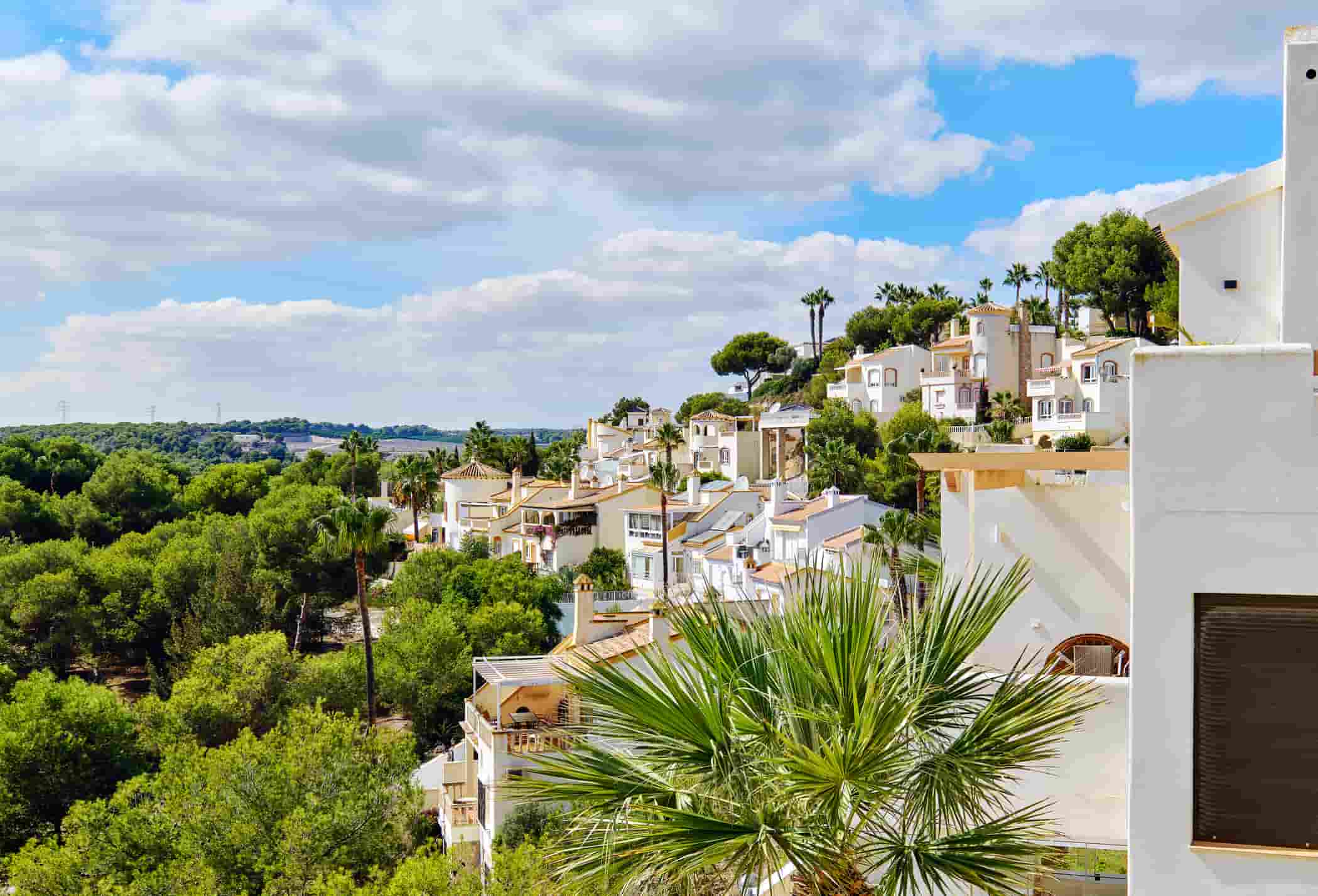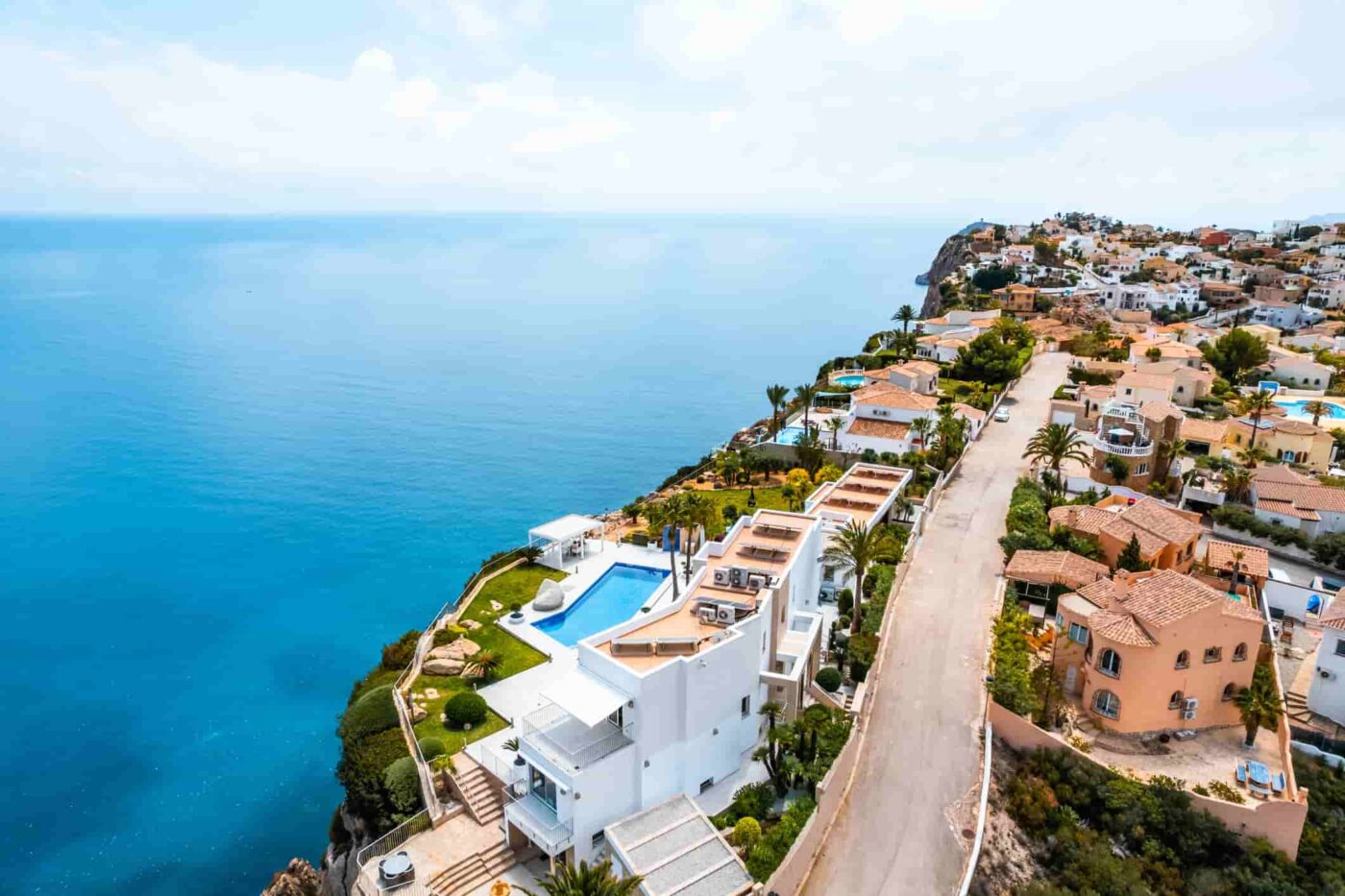Last Updated on March 20, 2025
If you are a UK resident selling property in Spain, the allure of the market is often balanced by the need to navigate a complex web of tax rules and legal obligations.
Spain’s vibrant culture, stunning landscapes, and favorable climate make it an attractive destination for foreigners looking to buy or sell property.
If you’ve bought property in Spain as an investment, or spotted a promising selling opportunity in the market, there are several factors to weigh before selling as a non-resident.
We’ve compiled the following guide to provide you with all the essential information needed to make informed decisions if you are a UK resident selling property in Spain, ensuring you save on costs and minimize potential risks.
Please note: PTI Returns supports international investors with Spanish property tax filing services. Unfortunately, we do not offer services related to Spanish mortgages or the sale of property in Spain.
UK resident selling property in Spain
If you are a UK resident selling property in Spain, you should know that this process involves a few key steps, much like selling a home in the UK, but with some unique twists.
First, gather important documents: title deeds, utility bills, proof of municipal property tax payments, and a list of any furniture or items included in the sale.
You’ll also need an Energy Performance Certificate, which you can get from an architect or engineer, and its cost depends on your property’s size.
During the sale, the buyer will make a 10% deposit, which they lose if they back out. If you change your mind, you might have to pay double the deposit.
Spanish law requires a notary to complete the sale. The notary checks that all paperwork is correct, confirms taxes are paid, and updates the Spanish Land Registry with the new ownership details.
Finally, since you’ll be receiving euros, make sure to handle the currency exchange wisely to avoid losing money.
Am I considered a resident or non-resident in Spain for tax purposes?
It is also critical to understand whether you are a non-resident or a resident of Spain.
The Spanish Tax Office considers a person to be a legal resident in Spain if any of the following conditions are met:
- the individual spends more than 183 days of the year in Spain.
- the individual’s economic activities are centered in Spain.
- when a non-legally separated spouse and her/his dependent underage children normally reside in Spain.
On the other hand, if you just spend 1 to 182 days in the country, you will be considered a non-resident.
I am a UK resident selling property in Spain. Do I need to report the sale to HMRC?
If you live in the UK, you need to report any property sale abroad, including in Spain, on your self-assessment tax return.
There’s no need for a separate disclosure to HMRC within 60 days, as it’s included in your overall Capital Gains report.
Currently, the UK and Spain have a Double Taxation Treaty, which means you shouldn’t pay tax twice on the same gains. The Capital Gains Tax (CGT) you pay in Spain will count as a credit against any UK CGT you owe.
The next question is whether you’ll owe any extra tax in the UK. Since each country calculates CGT differently, you’ll need to compare the rates and rules in both countries to determine if additional tax is due in the UK.

What documents do I need to sell property in Spain?
Here are some of the documents you will need if you decide to sell your property:
- Certification of ownership:
- Title deed or deed of the house – You received this document when you bought the property.
- Identity document – The document that allows citizens to be identified personally and unequivocally. “NIE” (Foreigner’s Identity Number) is one example.
- Certifications that prove you are up to date with payments, copies of utility bills
- Land registry record or “Nota simple registral”
- (IBI) Property Tax or “Impuesto sobre bienes inmuebles”
- Certificate stating there are no outstanding debts with the resident’s association or “Certificado de estar libre de pagos de la Comunidad de Vecinos”
- Certificate of outstanding debt and cancellation of encumbrances in the Registry or “Certificado de deuda pendiente y Cancelación Registral”
- Your residencia card if you have residency status
Some other documents that you might need:
- Energy Performance Certificate (EPC) or “Certificado de eficiencia energética”
- Report of Building Inspection or “Certificado de Inspección Técnica del Edificio (ITE)”
- Certificate of Occupancy or “Cédula de habitabilidad”
What is NIE (Numero de Identidad de Extranjeros) and why do you need it?
The NIE (Número de Identidad de Extranjeros) is your Spanish Tax Identity Number. You’ll need it for various tasks, including:
- Buying or selling property
- Opening a bank account
- Handling utility services
- Getting insurance
- Interacting with tax authorities
- Trading stocks or bonds
- Purchasing a car
Even if you bought property years ago without an NIE, you’ll need one to sell now.
NIE requirements can vary by location and change frequently, so we’ll guide you on the current process and costs when you reach out to us.
What are the fees and costs when selling property in Spain?
As a seller, you will have to pay:
- Estate agency fees (around 3-6%)
- Legal fees – around 1-2% of the sale price
- A certificate of energy performance
- If you sell for more than you bought it, you must pay capital gains tax (see below)
- Plusvalía tax (we will explain more below)
- Mortgage cancellation fees: 0.5-1% of the outstanding mortgage balance
- Notary and registry fees: 0.1-0.5% of the final sale amount.
Got questions? Request a no-obligation call with a tax advisor.



